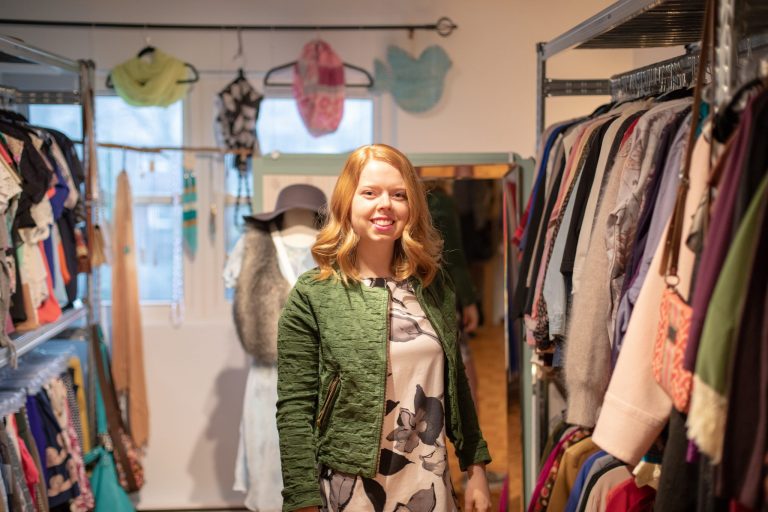In 2019, people seem more aware than ever of the importance of living sustainably and thinking about how their purchases affect the world around them. However, it can be hard to locate retailers that strive towards sustainability and to be sure you are making conscious, ethical choices.
Robyn Hobbs, owner and founder of Le Prix Fashion, offers some assistance.
Hobbs has been running Le Prix Fashion out of her Waterloo home for the past seven years. Le Prix is a clothing store that focuses on sustainability and self-love. You can find Hobbs taking these ideals out of her store to pop-up shops, local fashion shows, and many other events throughout Kitchener-Waterloo.
Recently, she has worked with the Wilfrid Laurier University Fashion Society, helping to style models for their annual fashion show.
Hobbs majored in environmental studies as an undergrad and went on to do a master’s in environmental studies with a thesis focusing on why people shop second-hand for fashion. Through Le Prix, Hobbs has been able to combine her passions for sustainability and fashion.
“I have always loved the environment,” Hobbs said.
“I was a student putting myself through school with very little money, so pairing the two [qualities of being] value-focused and sustainability-focused, I would shop for myself second-hand. Then my friends would like what I was wearing, then they would ask me, “can you take me shopping?””
Hobbs offers free styling for all who come to the store and ensures that all the clothes she sells are ethically and sustainably sourced. For Hobbs, one of the key factors to ensure clothing can be called ethical is to be aware of what happens at every step of the producing process.
“So it could be the natural resources; if you’re thinking about cotton, those people in the farmers’ fields, if they’re having a safe environment and fair wages,” she said.
“Then to the processing in facilities, if they’re using dyes, are they good for the fabric? Are they good for the environment?”
One of the major factors getting in the way of sustainable and ethical fashion seems to be the phenomenon of “fast fashion” which involves companies producing clothes quickly and inexpensively in order to keep up with fleeting trends.
“Fast fashion is similar to disposable clothing; you like it because it’s trendy. It doesn’t encourage investment in quality-made and ethically and sustainably made products … It’s just encouraging people to purchase without thinking. You’re just consuming without actually being conscious about it,” Hobbs said.
Hobbs wants to focus not only on how clothing can be sustainable, ethical and fashionable, but how it can make people feel better about themselves.
“I’ve always wanted people to feel their best and feel special — because everyone is special — and feel loved and confident. That kind of blossomed into Le Prix having three pillars: sustainability, self-love, and empowerment,” she said.
Le Prix Fashion can be accessed in person or online. Hobbs can also be found on the podcast Ecocast.

